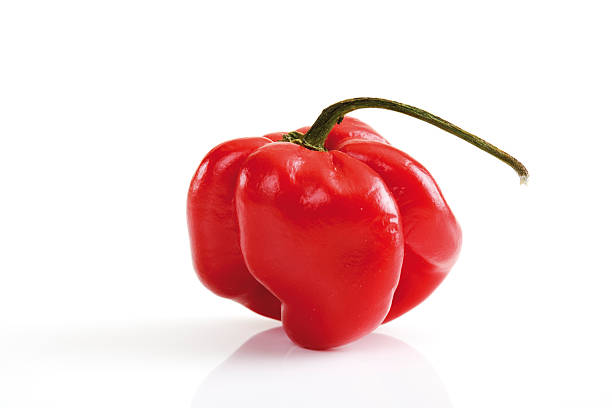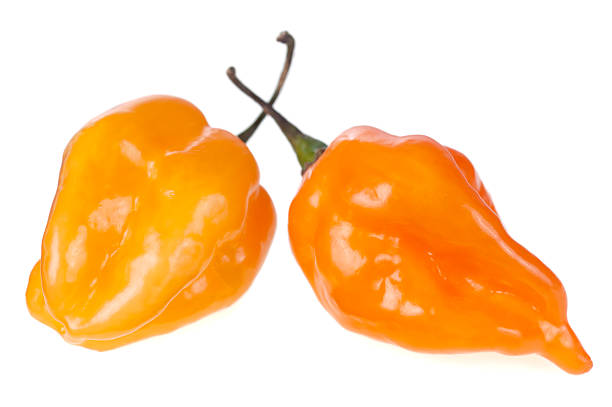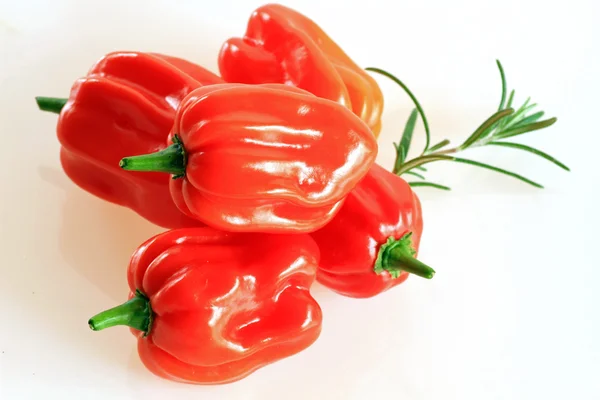
Scotch bonnet — also known as Bonney peppers or Caribbean red peppers — is a variety of chilli pepper named for its said resemblance to a Scottish tam o’ shanter bonnet. It is hot and ubiquitous in West Africa and the Caribbean.
Scotch bonnets are used to flavour many dishes and cuisines worldwide and are often used in hot sauces and condiments. Completely sweet varieties of Scotch bonnets called cachucha peppers are grown on some of the Caribbean islands.

Habanero is also a hot variety of chilli. The habanero’s heat, flavour and floral aroma make it a popular ingredient in hot sauces and other spicy foods.
Since both of these are hot and used interchangeably, they are often confused to be the same. In fact, certain tribes like the Yorubas of West Africa have christened them the same name “Rodo”. Keep scrolling to find out the difference.

The Scotch bonnet has a sweeter flavour and stouter shape, distinct from its habanero relative and gives jerk dishes (pork/chicken) and other Caribbean dishes their unique flavor. Unripe habaneros are green, and they color as they mature. The most common color variants are orange and red, but the fruit may also be white, brown, yellow, green, or purple.
Fresh, ripe Scotch bonnets can change from green to yellow to scarlet red; some varieties of this pepper can ripen to orange, yellow, peach, or even a chocolate brown.
Hit the ▶ button below to visually spot the differences between ripe red scotch bonnet and habanero:
View this post on Instagram
Scotch bonnets and habaneros are mostly used in West Africa, West Indian, Sri Lankan, and Maldivian cuisines and pepper sauces, though they often show up in other Caribbean recipes. It is also used in Nicaragua, Costa Rica and Panama for Caribbean-styled recipes such as rice and peas, rondón, saus, beef patties, and ceviche.
Credit:
Getty Images




